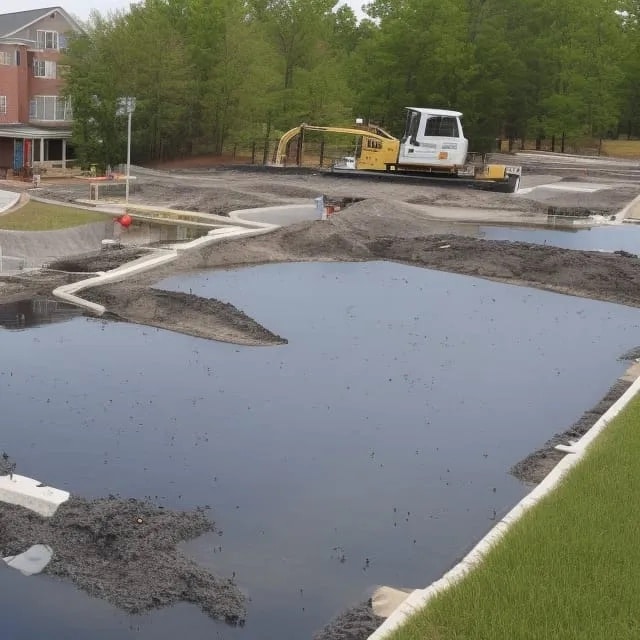North Carolina Construction News staff writer
Communities across North Carolina will share more than $223 million for water and wastewater infrastructure construction projects, including 41 construction projects. Over the last two years, North Carolina has invested $2.8 billion in water and wastewater infrastructure across the state.
“This funding will help us achieve our goal of safer, cleaner drinking water for all North Carolinians,” Gov. Roy Cooper said in a statement. “We have already seen the positive impacts funding like this can have for drinking and wastewater projects across our state and are ready to get to work to help more communities.”
The application period for the Fall 2023 funding round for water and wastewater infrastructure projects opens on Aug. 2 and ends on Oct. 2 at 5:00 p.m. Funding application training for this round will be provided through five in-person statewide sessions Aug. 2-10, with a virtual option available and a recorded training session to be available on the Division website. The training session time and location schedule is available on the Division website.
Recently approved projects include:
Town of Plymouth in Washington County
- $7.3 million in low-interest loans for their water system improvement project replacing all of the town’s old water metering systems and old galvanized water lines, as well as up to $9 million in low-interest loans to replace old sewer lines and reduce inflow and infiltration.
Aqua North Carolina, Inc.
- $3.4 million in loans to install PFAS treatment units at their Brookwood, Wyntree, and Willow Hill water systems.
Edgecombe County
- $2.7 million in grants and loans to extend sewer service to approximately 91 connections to the residents of the Lone Pine Mobile Home Park in a disadvantaged area that is currently being served by individual septic tanks in varying degrees of failure.
Town of Brunswick in Columbus County
- $2 million in grants for the Water System Resiliency Improvements Phase 2 project to install a new elevated tank addressing water pressure issues, install fire hydrants, and abandon two wells that are being replaced.
Town of Fair Bluff in Columbus County
- $3 million in grants for the 2023 Gravity Sewer Improvements project to rehabilitate nearly 50-year-old sewer lines, manholes, and service laterals to reduce inflow and infiltration.
Cape Fear Public Utility Authority
- 35 million in loans for a project to replace and expand its Southside Wastewater Treatment Plant, including the addition of a new activated sludge treatment process.
Town of Beech Mountain in Watauga County
- $3 million in loans to rehabilitate and replace a major portion of its sewer collection system that has caused sanitary sewer overflows at the Pond Creek Wastewater Treatment Plant and in watersheds that are classified as water supply sources.
Town of Farmville in Pitt County
- $3 million in loans and principal forgiveness to develop its reclaimed water infrastructure to serve industry in the Town and the County.
Town of Lake Lure in Rutherford County
- $7 million in loans to construct gravity sewer lines and complete a partnership between the Town and Chimney Rock Village through a physical interconnection of their wastewater systems.
Town of Nashville in Nash County
- $1.6 million in grants and loans to extend sewer service and connect approximately 42 residences.
Hyde County
- $400,000 in grants to develop a comprehensive Stormwater Master Plan for Ocracoke Village and capital improvement plan that will include conceptual design plans for three stormwater projects.
Town of Elkin in Surry County
- $315,000 in grants to develop a stormwater plan to protect Elkin Creek through nature-based techniques to stabilize a stream, minimize erosion, and control runoff through stormwater control measures.
“With each funding round, we continue to see that the need for infrastructure funding is far greater than the funding available,” said Secretary Elizabeth S. Biser. “DEQ is focused on providing funding to the communities that need it most to address aging infrastructure, PFAS contamination and access to affordable clean water and sewer service.”

